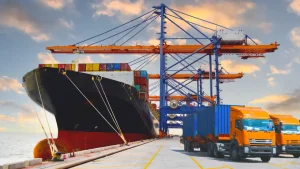Looking to maximize your sea freight operations in Singapore? Look no further! In this article, we’ll provide you with essential tips and tricks to help you make the most out of your shipping experience. From choosing the right shipping company to understanding customs regulations, we’ve got you covered. Discover how to optimize packing methods and maximize cost efficiency. Get ready to take your sea freight to the next level with these expert insights.
Choosing the Right Shipping Company
When you’re choosing the right shipping company, it’s important to consider factors such as reliability and cost-effectiveness. Reliability is crucial because you want to ensure that your goods will be delivered on time and in good condition. Look for a shipping company with a proven track record of timely deliveries and a low number of complaints. Cost-effectiveness is also important because you want to get the best value for your money. Compare prices and services offered by different shipping companies to find the one that offers competitive rates without compromising on quality. Additionally, consider the company’s expertise in handling your specific type of cargo. Some shipping companies specialize in certain industries or types of goods, so choose one that has experience in handling your specific requirements. By considering these factors, you can make an informed decision and choose the right shipping company for your needs.
Optimizing Packing Methods
To maximize the efficiency of your sea freight in Singapore, it’s important to carefully consider and implement optimized packing methods. Proper packing can significantly reduce the risk of damage during transit and maximize the use of available space, resulting in cost savings and improved productivity. When packing your goods, it is essential to choose appropriate packaging materials that are strong and durable. Use cushioning materials such as bubble wrap, foam, or airbags to protect fragile items. Utilize space efficiently by stacking boxes and utilizing every inch of available space. Consider using standardized containers to maximize the use of space and ensure compatibility with shipping equipment. Finally, make sure to properly secure your cargo with straps or stretch wrap to prevent shifting during transit. By implementing these optimized packing methods, you can ensure that your sea freight shipments in Singapore arrive safely and efficiently.

Understanding Customs Regulations
To understand the customs regulations in Singapore, you should familiarize yourself with the necessary documentation and requirements. When importing goods into Singapore, you will be required to submit several documents, including a commercial invoice, bill of lading, packing list, and certificate of origin. These documents provide crucial information about the goods, their value, and their country of origin. It is important to ensure that these documents are accurate and complete to avoid any delays or penalties. Additionally, Singapore has strict regulations regarding prohibited and controlled goods. Before shipping your goods, you should check if they fall under any restricted categories and obtain the necessary permits if required. Familiarizing yourself with Singapore’s customs regulations will help you navigate the import process smoothly and avoid any unnecessary complications.
Maximizing Cost Efficiency
To maximize cost efficiency, you should carefully evaluate different shipping options and choose the most cost-effective solution for your business. When it comes to sea freight in Singapore, there are several factors to consider. Firstly, you should assess the volume and frequency of your shipments to determine whether full container load (FCL) or less than container load (LCL) is more cost-effective. FCL is recommended for larger shipments, while LCL is suitable for smaller ones. Additionally, you should compare the prices and services offered by different freight forwarders and shipping lines. Look for companies that offer competitive rates and reliable transit times. It is also important to consider any additional charges, such as port handling fees and customs duties. By carefully evaluating your options, you can maximize cost efficiency and make informed decisions for your business.
